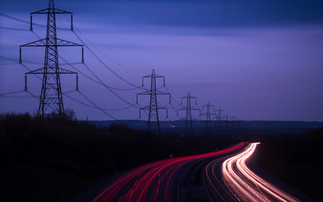Move hailed as major milestone in transition towards distributed energy supplies and a low carbon economy
The disruptive impact solar power is having on traditional utilities was highlighted last week, after Barclays downgraded the US power sector over fears it will struggle to compete with increasingly low cost renewable energy.
According to reports, the bank last week downgraded the high-grade bond market for the electricity sector across the US to "underweight", predicting solar power could become an increasingly disruptive force on the industry over the coming years.
"In the 100+ year history of the electric utility industry, there has never before been a truly cost-competitive substitute available for grid power," the bank said in a statement. "We believe that solar + storage could reconfigure the organisation and regulation of the electric power business over the coming decade."
The credit strategy team said its analysis had shown that solar power, coupled with new storage technologies, is already competitive with grid-sourced electricity in Hawaii and could reach grid parity in California in 2017, New York and Arizona in 2018, and "many other states soon after".
Industry analysts said the news marked a major breakthrough for the transition to a low carbon economy, proving that solar power had the capacity to destabilise what has traditionally been one of the most solid sectors for investors.
"This is essentially Barclays repricing bankruptcy risk for the entire electric utility sector," said Elias Hinckley, head of global energy finance for law firm Sullivan & Worcester on his blog. "This is a sophisticated bank not just acknowledging coming changes to the utility model, but pointing to the risks that have given rise to the idea of the utility death spiral and determining them to be a clear and present danger."
He added that the downgrade was also likely to prompt a hostile reaction from traditional utilities. "Expect to see renewed efforts by some utilities to frame solar and other point-of-use energy solutions as destabilising and dangerous to the electric system," he said.
The move is the latest in a string of developments highlighting the extent to which renewable energy technologies are now disrupting centralised utility business models.
In Germany, a number of energy companies have seen their profitibility come under pressure as the amount of solar and wind capacity has soared, leading to drastic fluctuations in the price of power.
Supporters of renewable energy are increasingly confident that clean energy sources, coupled with energy storage systems, will soon undercut coal and gas power on price, leading to a surge in new investment. A number of utilities have started to embrace this vision, unveiling plans to develop energy services and provide customers with onsite renewables and energy management technologies.
However, others have signalled their intention to fight the emergence of low cost solar technologies and debates are now raging in a number of jurisdictions over whether utilities should charge distributed solar generators prohibitive grid connection fees to try and undermine the appeal of solar power.









